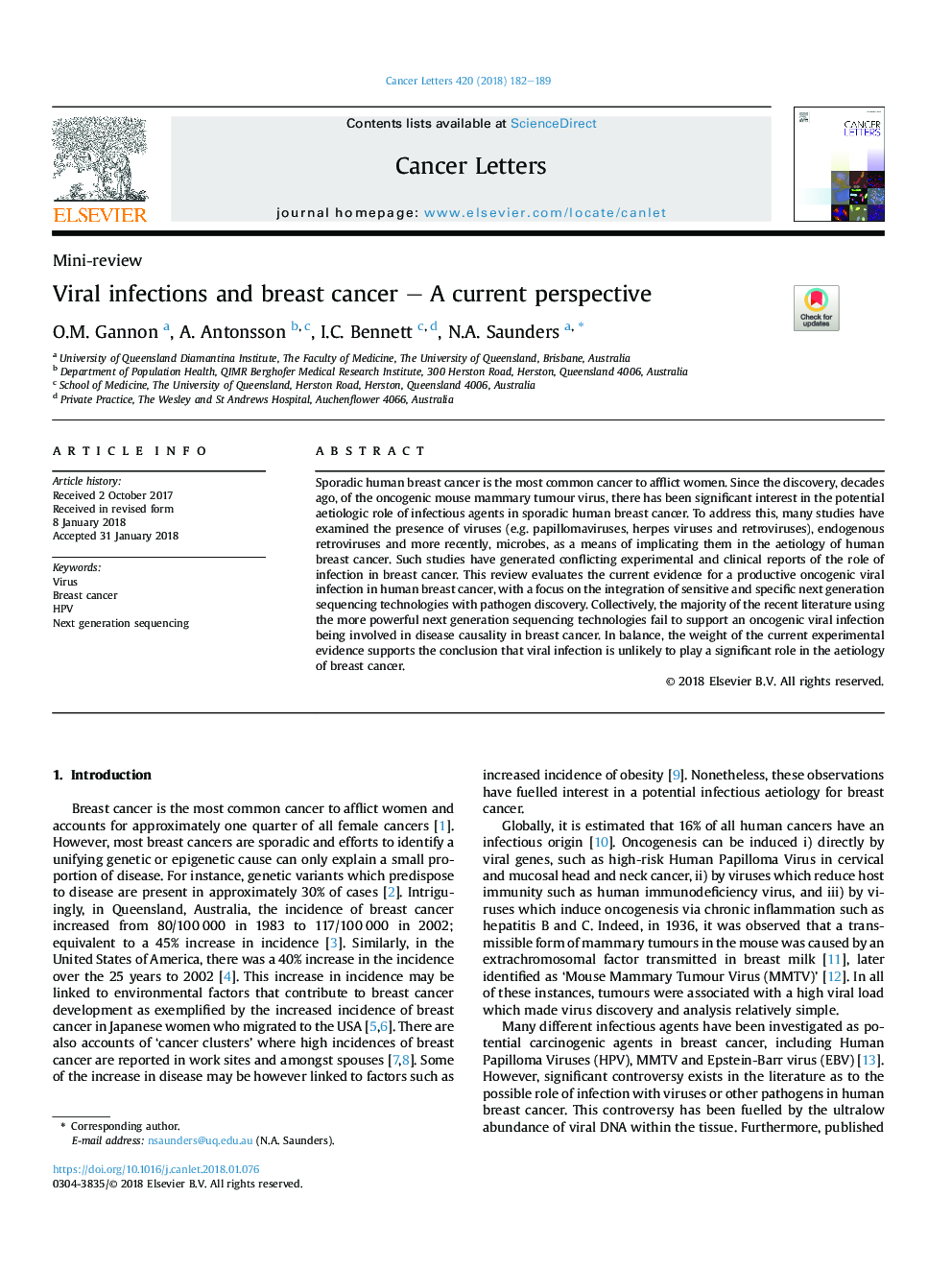| Article ID | Journal | Published Year | Pages | File Type |
|---|---|---|---|---|
| 8434614 | Cancer Letters | 2018 | 8 Pages |
Abstract
Sporadic human breast cancer is the most common cancer to afflict women. Since the discovery, decades ago, of the oncogenic mouse mammary tumour virus, there has been significant interest in the potential aetiologic role of infectious agents in sporadic human breast cancer. To address this, many studies have examined the presence of viruses (e.g. papillomaviruses, herpes viruses and retroviruses), endogenous retroviruses and more recently, microbes, as a means of implicating them in the aetiology of human breast cancer. Such studies have generated conflicting experimental and clinical reports of the role of infection in breast cancer. This review evaluates the current evidence for a productive oncogenic viral infection in human breast cancer, with a focus on the integration of sensitive and specific next generation sequencing technologies with pathogen discovery. Collectively, the majority of the recent literature using the more powerful next generation sequencing technologies fail to support an oncogenic viral infection being involved in disease causality in breast cancer. In balance, the weight of the current experimental evidence supports the conclusion that viral infection is unlikely to play a significant role in the aetiology of breast cancer.
Related Topics
Life Sciences
Biochemistry, Genetics and Molecular Biology
Cancer Research
Authors
O.M. Gannon, A. Antonsson, I.C. Bennett, N.A. Saunders,
